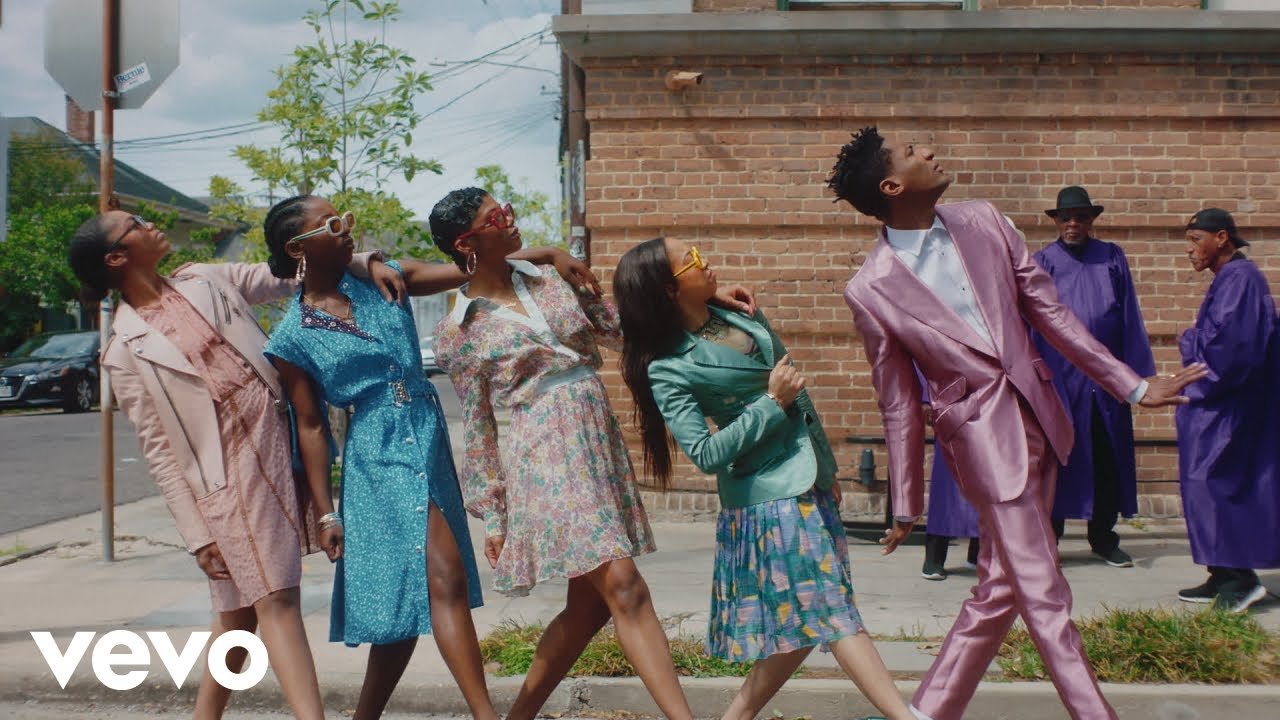Jon Batiste Needs No Strings to Hold Him Down

The first track from his upcoming "Hollywood Africans" album is overdressed, thanks in part to producer T Bone Burnett.
Had David Byrne not followed him on the Gentilly Stage, Jon Batiste’s set with the Dap-Kings would have been the story of his day at Jazz Fest this year. His set presented a different Batiste than the one we saw on the Acura Stage with Stay Human the year before or on The Late Show with Stephen Colbert. Batiste’s sets with Stay Human have explored the space where a number of traditionally black musical forms overlapped—a genre he calls “social music”—but this year, he worked more conventionally as an R&B singer, a blues man, and a jazz guy. His vocal chops have evolved to a place where he could make and execute smart vocal choices on “St. James Infirmary Blues” and “What a Wonderful World,” lightening up on the drama because the lyrics didn’t need to be oversold.
It would be nice to hear some of that ease and trust in the material in “Don’t Stop,” the first single from his upcoming album, Hollywood Africans. The album includes some songs from the set including “St. James Infirmary Blues” and “What a Wonderful World,” but T Bone Burnett’s production on “Don’t Stop” screams “Big Statement,” with showy strings at odds with the song’s interior dialogue. Some of Batiste’s chords drop with such weighty significance that there’s no escaping how much the singer has on the line in the relationship with the woman to which he sings. But his desperation is made clear by Batiste’s terse vocal, so all the pounding and showy grabs for significance are redundant.
I don’t put the blame solely on Burnett, even though Batiste’s Jazz Fest set had a more even hand. The musician has to sign off on the producer’s choices, and in the case of the big chords, the musician has to play them to give the producer something to render with more impact. Clearly Batiste heard something in this treatment that made sense to him, but to me it adds drama to the dramatic without meaningfully more effect. I’d rather hear a haunted Batiste on his own in an emotional minefield than with a string section there to show support.
I’m still looking forward to Hollywood Africans, which is due out September 28. I don’t need another version of “St. James Infirmary” or “What a Wonderful World,” but I’m looking forward to hearing how they end up on the album. I’m always interested in hearing how New Orleans and its artifacts are translated for the world outside of Orleans Parish. Part of what interests me about Burnett’s production is that he is translating another New Orleans product—Batiste—and his choices hint at what he thinks needs to happen to help people get Batiste’s music. I can also see Burnett’s logic in presenting Batiste as someone with gravity since his on-screen and onstage persona is so upbeat, but I’d rather hear him without the accoutrements designed to make sure that everybody gets his music. Being complex, nuanced, sometimes enigmatic got Batiste a gig on network television, so it’s hard to believe that audiences can’t get him without strings to cue their responses.






